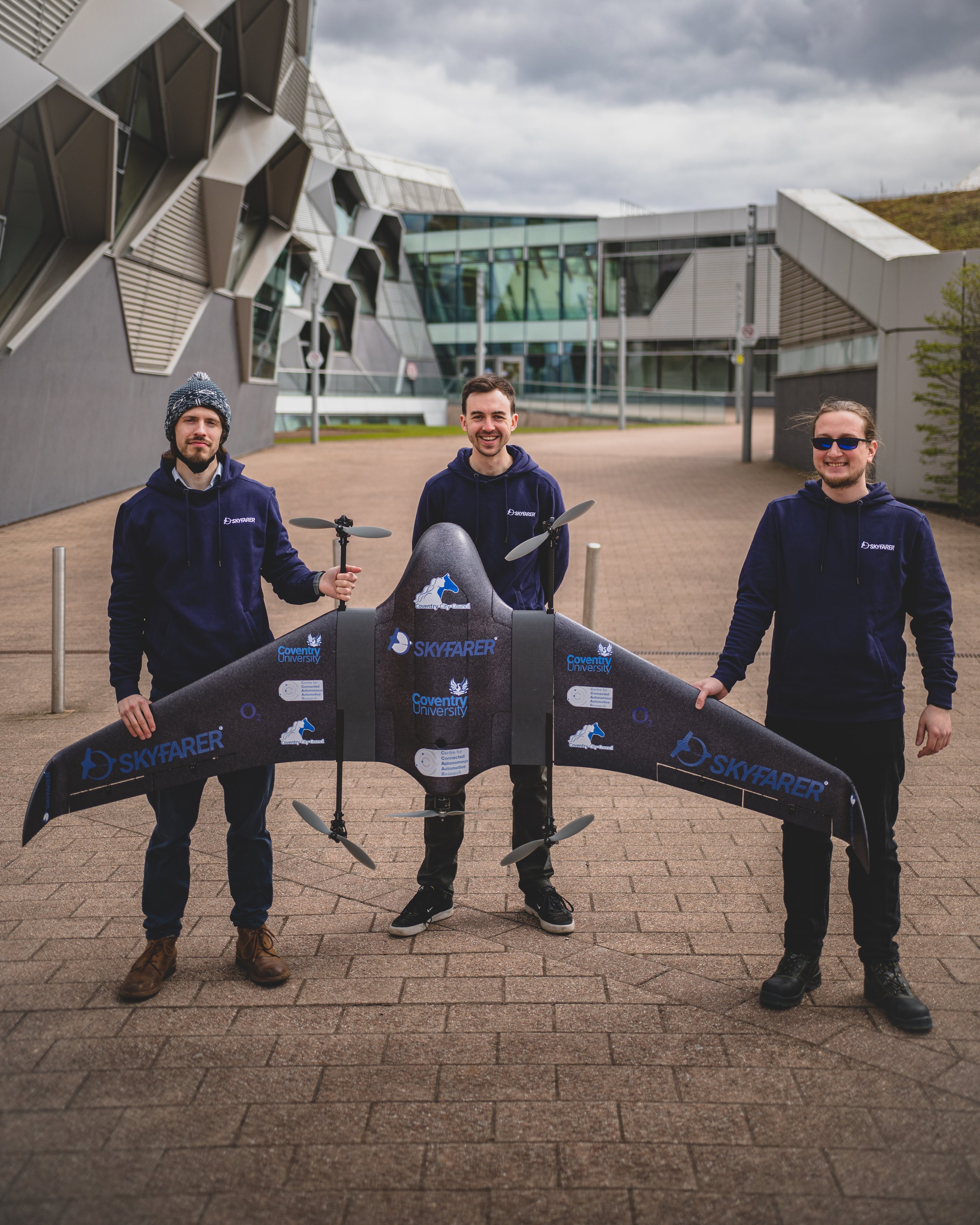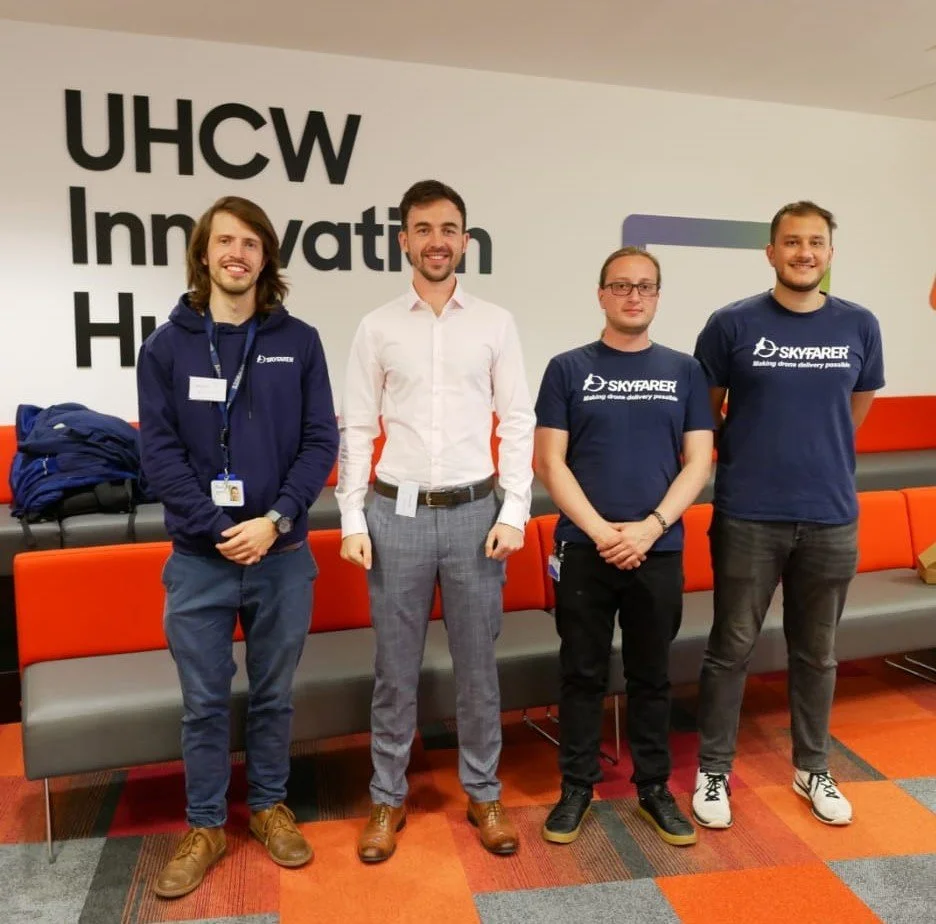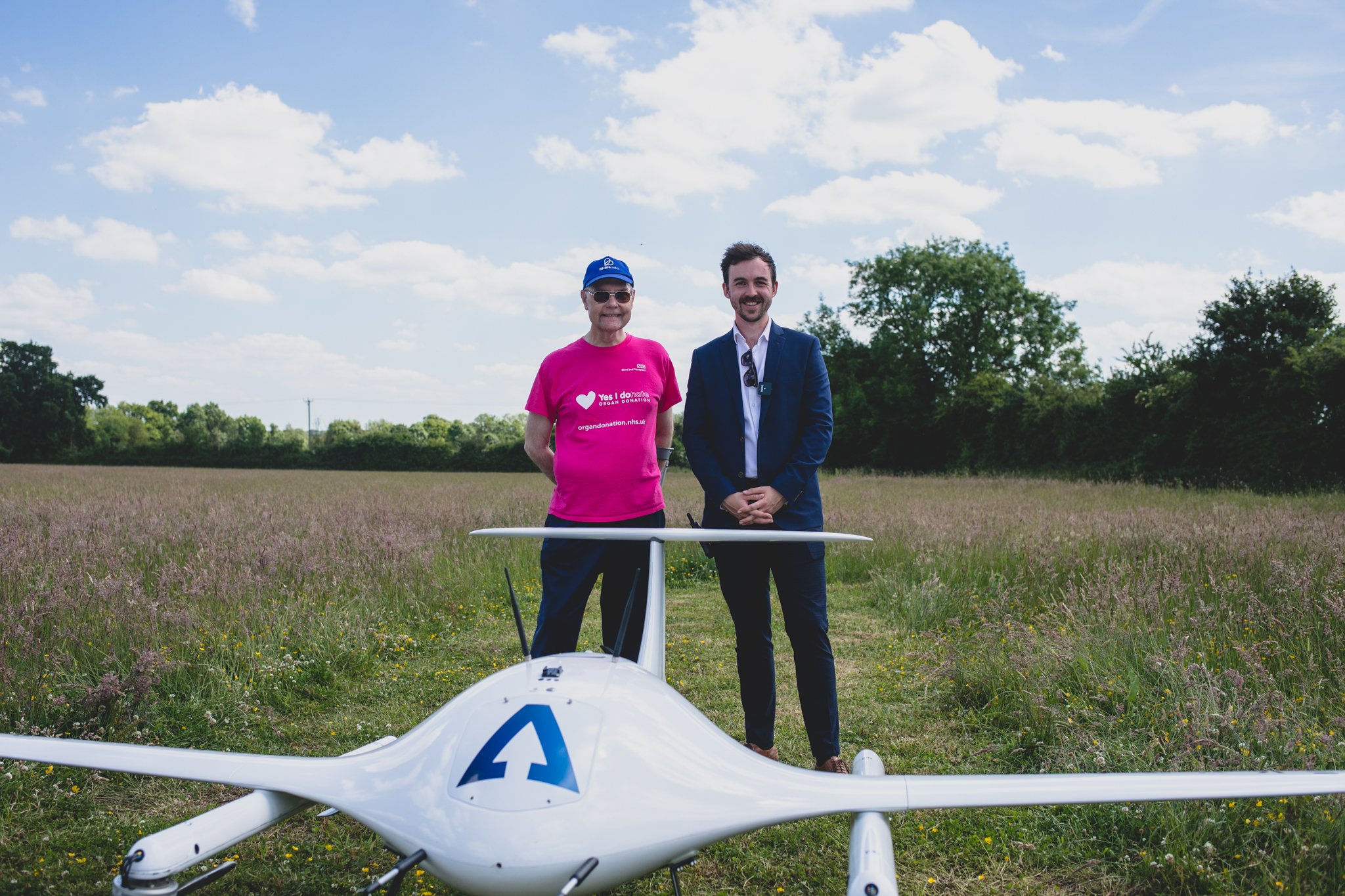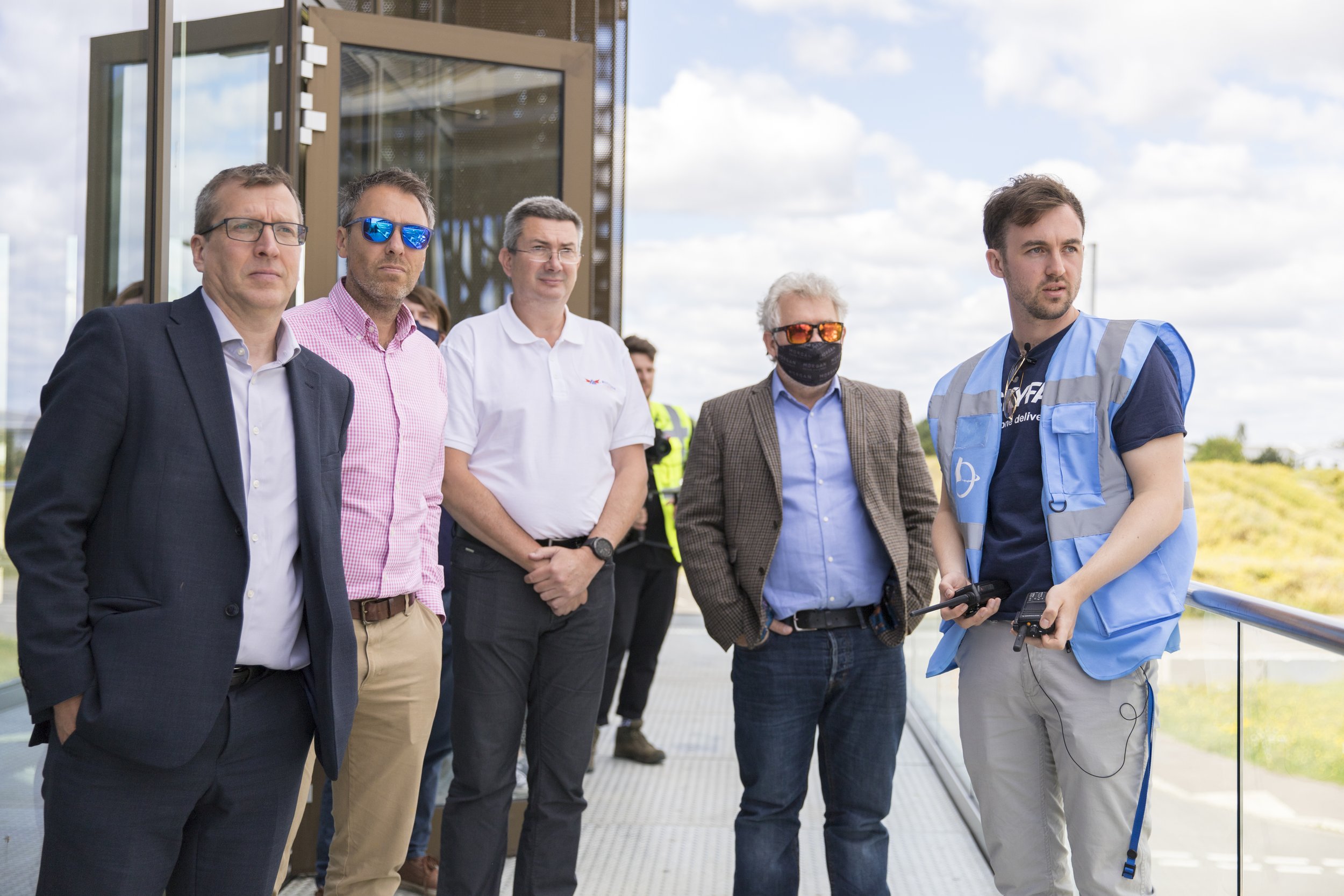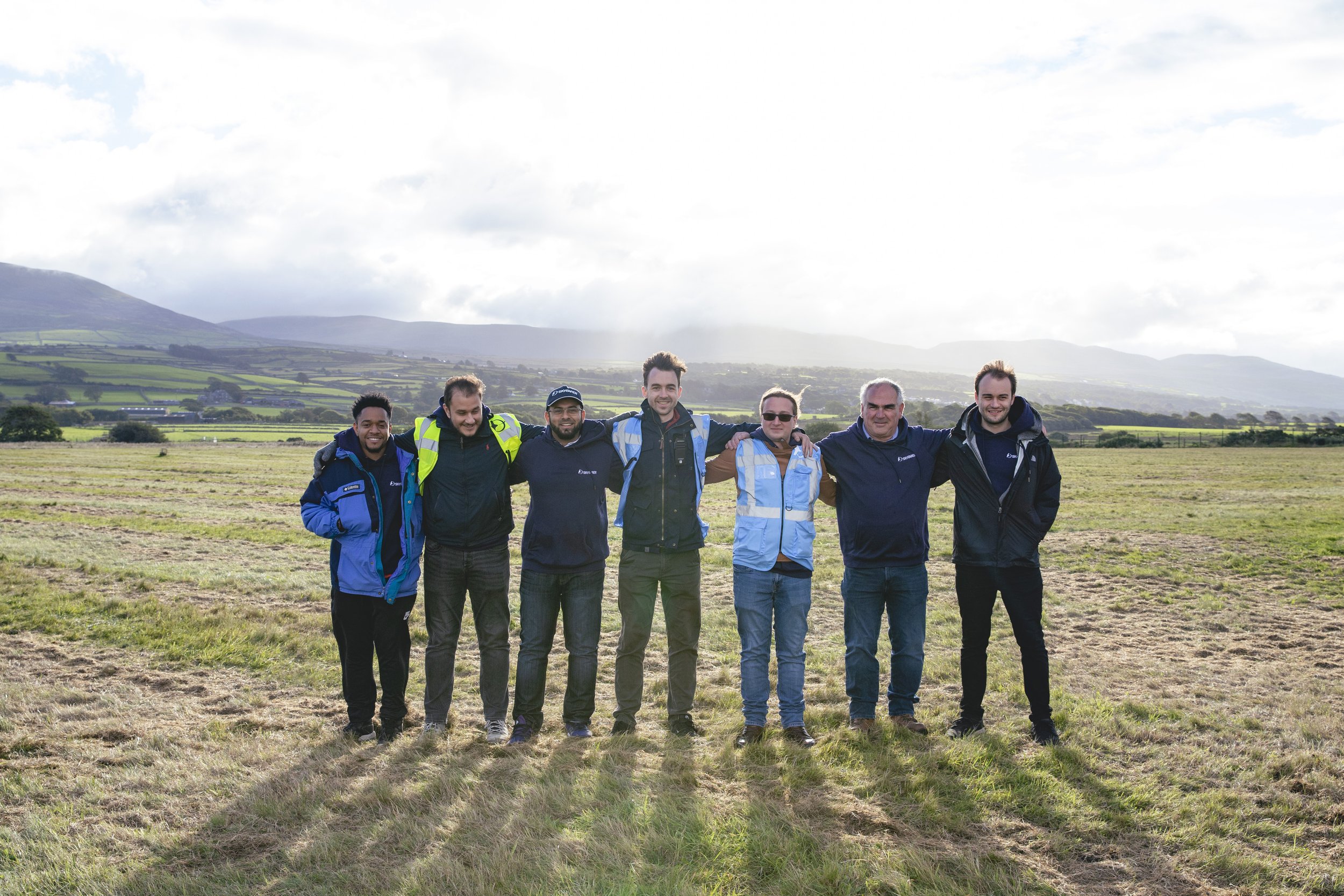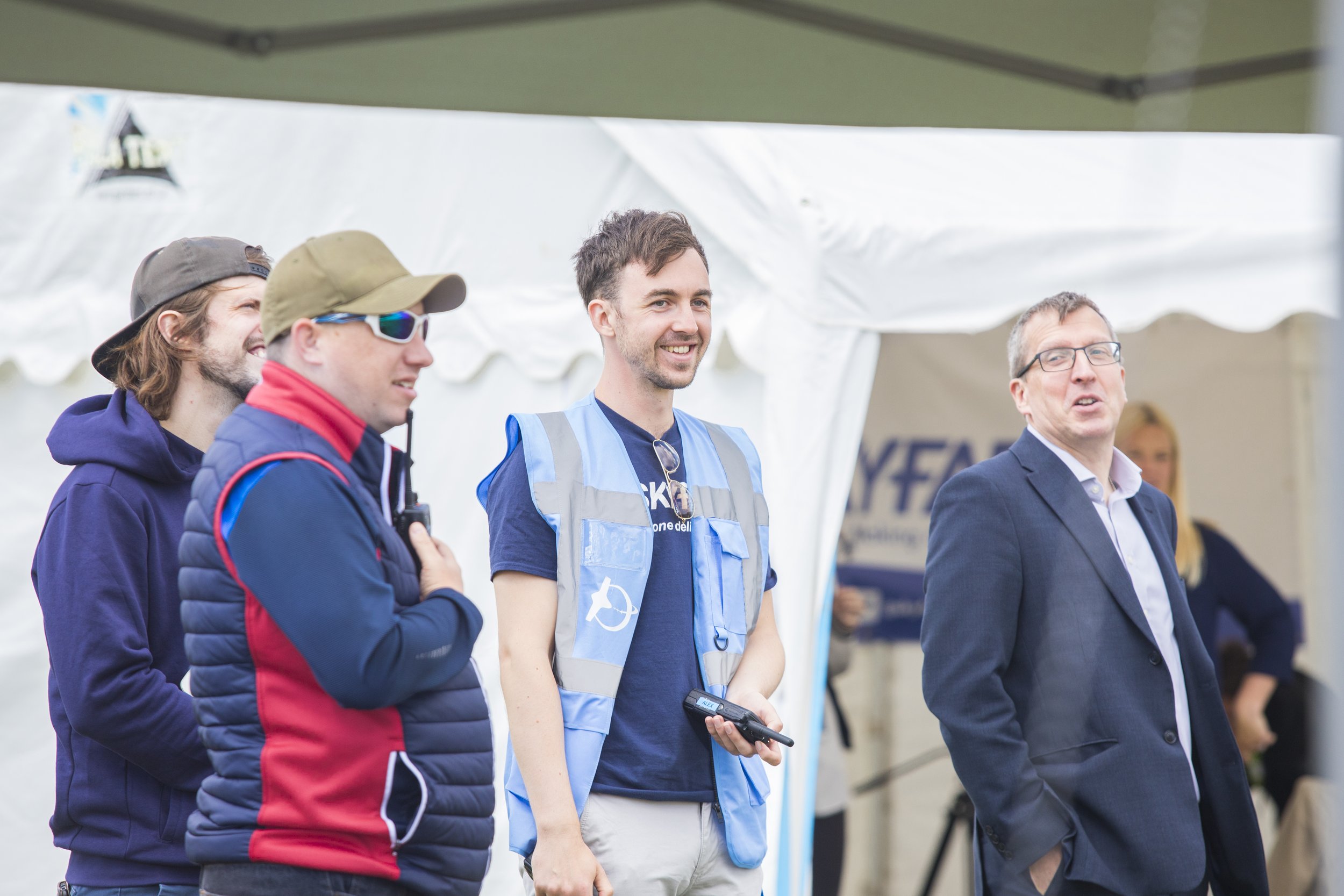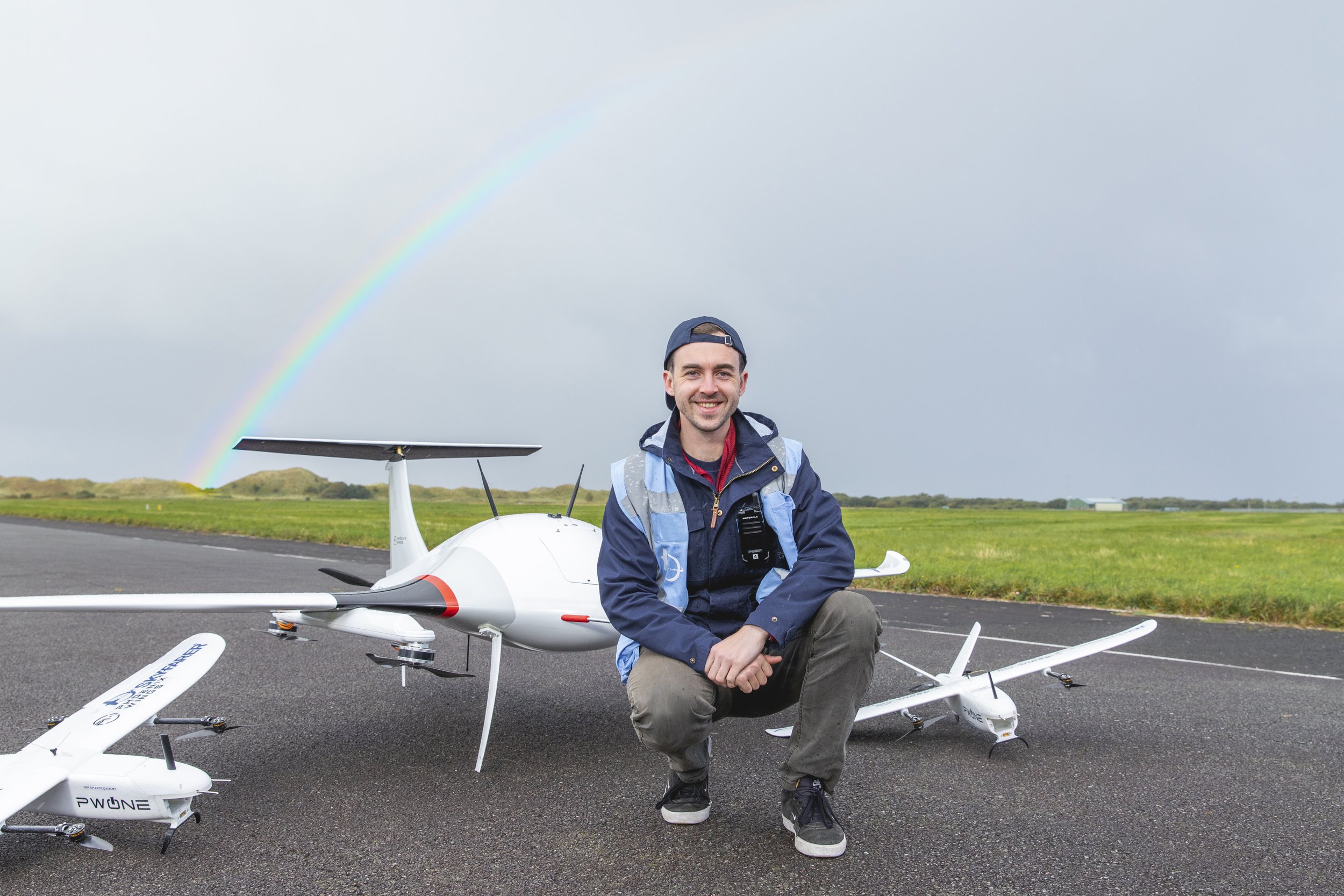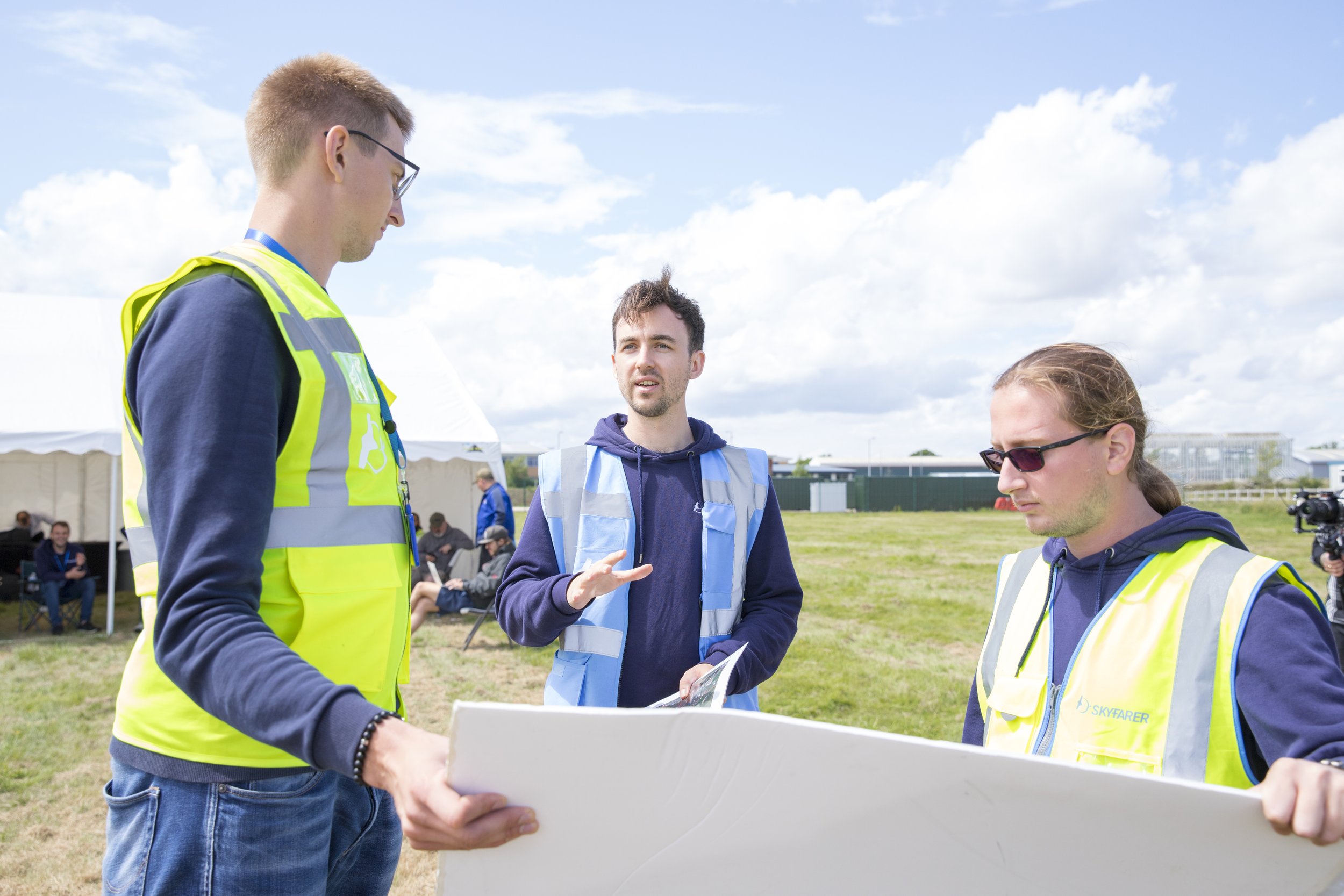Inside Skyfarer
Building a business from concept to takeoff
Getting a startup off the ground isn’t easy.
Company founders have a lot to consider, from funding to long-term business strategy. For Skyfarer’s CEO Elliot Parnham, things have taken off fast.
He’s gone from studying aerospace engineering at Coventry University to running an aerial logistics business with significant backing in 5 years.
From student to startup CEO
Back when he was at university, Elliot didn’t plan on becoming an entrepreneur. He imagined a career as an RAF officer, but changed his mind after a stint with the University Air Squadron.
“I discovered that I don’t like being told what to do,” says Elliot.
His experience of the conventional engineering career path also left him unfulfilled, as there were “a lot of constraints”. Instead, he began to explore entrepreneurship after his dissertation on a type of drone called blended-wing-body. He saw the potential for using drones across the logistics sector, with a focus on vital medical deliveries and supporting emergency services. Alongside this, Elliot recognised the sustainability benefits of drones compared with road-based deliveries.
His ideas led to him talking to the university enterprise hub and founding Skyfarer.
“When I set up Skyfarer in 2017, I connected it to medical delivery, as even at that early stage I felt it was very important to have a clear societal benefit,” says Elliot.
Behind the scenes at Skyfarer
There’s no such thing as a typical day for Elliot. He could be working with colleagues on the technical side of operations. Or he might be heading out for flight tests, attending industry events, or meeting a local mayor to talk about the potential of drones across a range of sectors.
(Being a company founder has plenty of unglamorous moments too, such as sweeping floors in a suit ahead of important events.)
Skyfarer follows a weekly agile structure, but the rapidly changing nature of the sector means that Elliot’s schedule as CEO and founder requires flexibility.
Long-term strategy is something he has to find time to think about too, which helps keep the job engaging. “We work in a new and fast-moving field which provides all kinds of fulfilment,” says Elliot.
“I love being part of a team that’s doing things that haven’t been done before. It’s also exciting that we’re writing the rulebook as we go along.”
Pivoting: from production to operations
Skyfarer pivoted early on from drone production to operations. Elliot and his colleagues initially created a proof of concept manufacturing but realised that there were other drones (not necessarily just blended-wing bodies) that were ready to use with fantastic technology and decided to change tack.
“At that point, I thought: “why don’t we do something that no one’s working on?”, says Elliot.
“That led to us focusing on operations, rather than making drones. It felt like a natural, collaborative shift that made complete sense.”
As Skyfarer continues to expand, Elliot is considering another step within the same sector: creating a software package that makes it easy for people to perform large-scale operations without any bottleneck
Leadership and teamwork
When Elliot started Skyfarer, he saw lots of development across the growing drone sector. It led to people attempting to solve complex challenges without specialist support, leading to wasted time and resources. He decided to create a consortium to help different organisations pool their expertise.
“That element of collaborative leadership in the market is something that I’ve always been interested in trying to fill,” says Elliot.
“It can seem scary and daunting, but someone needs to do it.”
As a young CEO, Elliot says it can be tricky balancing the strategic side of running a business with the daily operational admin.
“There’s an element of loneliness because the buck stops with you,” says Elliot.
“It’s exciting, but it’s also a bit daunting and can be quite stressful.”
He says it’s important to think about your vision, or your “why” when things get tough. “It’s not always going to be easy, but when everyone in the team has the same mindset, we can all work together towards realising our vision.”
As a young CEO, Elliot’s approach to business decisions has evolved. He’s gone from a calculated, engineers approach to relying more on instinct. “Trust your gut. I think a lot of people can be uncomfortable with the idea that there might not necessarily be a lot of numbers behind a decision,” says Elliot.
“Ultimately, business is an art, not a science.”
Building teams and connecting with colleague
Elliot tries to work with people who believe in Skyfarer’s vision and approach. He says that in his experience, startups may not always be able to hire older, experienced team members, but that isn’t a bad thing.
“When you look at people who have worked somewhere corporate for a long time, often they’re trained in a certain way that makes it challenging for them to think creatively”, he says. Qualities he looks for in potential colleagues include intelligence, ambition and “a willingness to learn”. And a sense of humour.
“Being able to be yourself and have a laugh is really important,” says Elliot.
“When you’re in charge of a team, that personal, friendly connection is very important.” Running a startup can be stressful, so Elliot makes time to get out of the office with his colleagues to play team sports, head out go-carting and spend time socialising without the pressures of work.
The future of Skyfarer
When thinking about where Skyfarer will be a few years down the line, Elliot says a fantasy setup would be an office that resembles Stark Tower from the Marvel universe.
“But being a bit more realistic, I see us being an entity that enables 24/7 routine and ad-hoc operations for regional hub operators, with scalable networks across the UK and the globe,” he says.
He envisions Skyfarer supporting emergency services operations by being first on the scene and delivering assets, delivering medication, or bringing organs to people ahead of surgery. Alongside this, they could explore inventory management and “the last mile”, says Elliot.
“In 20 years, it would be amazing to take a step back and say: “that’s something we helped build and it’s making a difference in people’s lives.”


